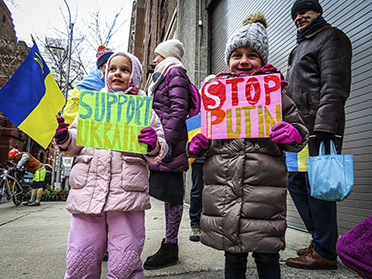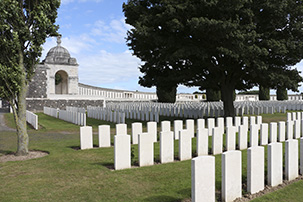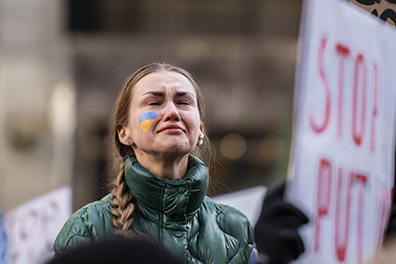Resisting Evil
If I write about anything else this week, it’ll be squashed by the elephant in the room. So, a few thoughts on the Ukraine tragedy.

A little historical context first. Countless millennia ago we lived in Heaven as spirits before coming to earth. There was a war—yes, an actual War in Heaven! The Book of Revelation describes it. Michael and Lucifer with their hosts fought a battle, beyond mortal memory or comprehension. But very, very real: not just a fanciful myth. And we were there, soldiers in the struggle. Chapter 4 of Moses tells us the root cause was Satan’s maniacal desire to overthrow God, acquire total power, and destroy human agency. Satan was defeated and cast out of Heaven, but he continues the War on Earth where the same fundamental issues of power and agency are at stake. Whenever we see the pursuit of power and suppression of freedom the malignant influence of Satan is behind it.
This isn’t limited to armed conflict. It occurs in all spheres of life: business, politics, education, families, relationships and even religion. Whenever the tendency to dominate and control arises, we play Satan’s game. It crops up everywhere, in conversations, boardrooms, councils, and especially social media. It has no place in the Gospel of Jesus Christ, as Joseph Smith reminded us:
We have learned by sad experience that it is the nature and disposition of almost all men, as soon as they get a little authority, as they suppose, they will immediately begin to exercise unrighteous dominion.
No power or influence can or ought to be maintained by virtue of the priesthood, only by persuasion, by long-suffering, by gentleness and meekness, and by love unfeigned (D&C 121:39,41)
Of course schools need rules, order and control. Families need discipline. Society needs laws and laws need police. The Church needs organisation, procedures and leadership, and God has given commandments. Freedom doesn’t mean doing our own thing our own way regardless of others. The chaos of anarchy is always wrong. Problem is, people don’t always agree what the rules should be.
An essential component of democracy is compromise. A willingness to accept some decisions we disagree with so we can retain a majority of the most important. Joseph Smith described our obligation concisely:
We believe that no government can exist in peace, except such laws are framed and held inviolate as will secure to each individual the free exercise of conscience, the right and control of property, and the protection of life . . .
We believe that all men are bound to sustain and uphold the respective governments in which they reside, while protected in their inherent and inalienable rights by the laws of such governments (D&C 124:2,5)
We may not agree with everything our government does but we support it if fundamental rights and freedoms are protected. (Unfortunately Joseph didn’t explain what we do when a government does not protect inalienable rights: individuals must find their own answer to that!)
Occasionally the action of a government is so appalling, so outrageously evil that all decent people and free nations condemn it. The invasion of the Ukraine is atrocious, wholly indefensible barbarism. But sadly we may not agree what to do about it. Historically the appeasement of dictators has never worked. Yet again and again we tolerate monstrous crimes against humanity with ineffective actions and a disunited, weak response. Governments are too tentative resisting evil because of self-interest, especially economic reasons in an interdependent world. But sadly it’s impossible to confront evil without cost.

There are moral issues for individuals. Should members of The Church of Jesus Christ of Latter-day Saints in Russia, raise their voice loud against the government, if it places their brothers and sisters as well as themselves in deadly danger? How outspoken should political or religious leaders be, if it generates official persecution? Christians torn apart by lions or hanging from crosses in ancient Rome come to mind. Decisions like this are hard to weigh. There’s always a cost, sometimes a heavy one, in taking a stand. Nevertheless, it seems that a lack of wholehearted opposition, and disunity among nations is our biggest weakness. If the free democracies in the world were always united in total opposition, including massive armed force, dictators like Putin would be stopped quickly, with the least cost in lives and suffering in the long run. If that had been our response to similar atrocities in the recent past, there would be no Ukraine crisis now. History shows that irrational tyrants who care little for the suffering of ordinary people, even their own, respond to overwhelming force and little else. The words of Winston Churchill come to mind, in the subtitle of the final volume of his History of the Second World War:
How the great democracies triumphed and so were able to resume the follies which had so nearly cost them their life.
A theme we see repeated again and again in the Book of Mormon and, indeed the Old Testament.



